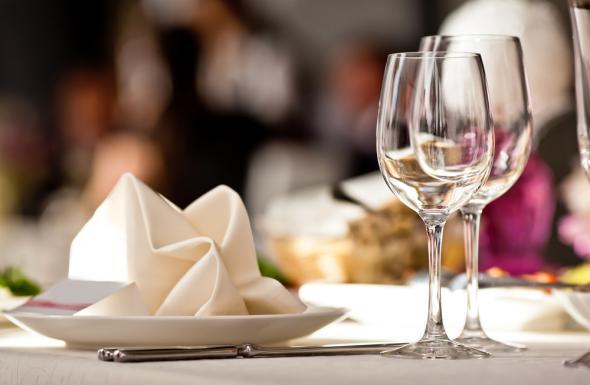The Washington Post’s Tom Sietsema had a rant in this past weekend’s paper about restaurants that don’t take reservations, and the endless wait times that ensue when patrons can’t book a table in advance. “On the surface, not saving tables sounds egalitarian. Whoever shows up first has a shot at getting in, regardless of clout or contacts,” writes Sietsema. “But hospitality takes a holiday at establishments that don’t book. In effect, these restaurants are saying, ‘It’s more important for us to fill every seat than to treat diners like guests.’”
Sietsema makes some excellent points, chief among them that no-reservations policies effectively discriminate against “senior citizens who might not be able to stand for long or don’t go out after dark, parents who may be reluctant to shell out $20 an hour for child care for a meal that may or may not happen, and suburbanites reluctant to drive in for the chance to be turned away.” And then, of course, there are those of every age and background who just don’t think it’s worth it to wait three hours for a decent meal.
But he neglects to mention the many legitimate reasons restaurants have for not taking reservations. For one thing, as the New York Times detailed in 2010, reservations systems cost money, whether you’re employing staffers to man the phones or paying OpenTable $2,000 a month for its services (or both). For another, taking reservations means opening yourself up to the possibility—nay, inevitability—of no-shows, who can tip the scales between a profitable night and an unprofitable one.
Sietsema has a proposed solution to the problem of no-shows:
The hospitality industry would be wise to adopt the practice of doctors, dentists and fitness trainers, who charge customers who fail to show for an appointment. A fair penalty? The check average, per person, for every guest who fails to honor a commitment—Yelp blow-back be damned.
In theory, this is a great idea. There are few commitments that Americans take as lightly as restaurant reservations, even though blown-off reservations are a major pain in the neck for restaurateurs. Forcing people who want the convenience of a reservation to have a little skin in the game seems like a great way to make reservations more meaningful. In practice, though, fines alone aren’t enough to deter no-shows.
Eater’s Amy McKeever thoroughly investigated “How Restaurants Can Deal With No-Show Diners” last year, and she found that a policy of fining no-shows doesn’t scare off all untrustworthy diners—nor does it always help restaurants recoup the lost revenue associated with no-shows. No-shows have been known to cancel their credit cards or dispute the charges on their statement in order to evade cancellation fees. The only way to legally ensure that a restaurant will be able to collect cancellation fees is to make patrons sign a contract when they make their reservation, or to force customers to put down a deposit instead of just threatening to charge their card in the event that they don’t show up. Even then, “Restaurant managers run the risk of coming off as jerks and losing future business if they don’t waive the fee when someone has a good excuse, whether it’s real or not,” as Jessica Sidman wrote in Washington City Paper recently.
The main problem with reservations is a cultural one: Customers feel entitled to ignore restaurant reservations without consequences. And shifting to a system in which reservations are widely understood to be meaningful commitments will be rocky: People don’t like it when something they’re used to getting easily and for free becomes complicated and expensive. I agree with Sietsema that charging no-shows the full price of a meal would be “a fair penalty”—but just because it’s fair doesn’t mean people will accept it serenely. (And the “Yelp blow-back” that Sietsema skims over can be fatal for a fledgling restaurant.) Unless and until customers come to see skipping out on a reservation as an unconscionable violation of the social contract, I don’t blame restaurateurs for choosing a no-reservations policy over the hassle of dealing with no-shows.
